I am staying in Olympia with former walker John Montrose. Tonight, we are giving a program at Orca Books in downtown, but first I want to introduce you to John. John was a thru walker on the Walk for the Earth across the United States and on the Trail of Tears Walk. "I hadn't been aware of many of the Native American struggles, so visiting the reservations was a real eye opener. It formed a seed in my head of wanting to work with native peoples," he said. John is now in his eighteenth year as a teacher in Native American schools. John continued, "What really sticks with me from the walk was the feeling that any place could be my home. I looked forward to every day getting up and walking. It became sort of a meditative process. Winning the horse (on the Pine Ridge Reservation--chapter 12) was definitely a highlight. I love the idea of each person being able to pass on the idea of the quest for enlightenment. It was just a very powerful moment for me. I'm hoping we're all doing what we can to help each other on our journeys."
John is a teacher at the WaHeLut Indian School on the Nisqually River. He's been there 12 years, teaching fifth grade and middle school. Before that, he worked in a school on the Navajo Reservation. "It's funny, the kids assume that I am native. We've learned in their coastal language how to introduce ourselves and we state our tribe, and I say I'm from the Scotland Tribe, so they get a clue of my European ancestry. We work a lot on tolerance. That's one of my roles, helping to bridge the gap between the anglo culture and native traditional life. Our students have a difficult time mainstreaming into the western culture. Our goal is to help them both ways, to stress their cultural identity and to help them know their traditions, but we're caught in that dilemma of academic accountability, so it seems like our cultural activities and other core subjects are losing some ground to the standardized test regimen."
Some of the cultural traditions the young people are exposed to is the resurgence of the traditional canoe journeys. "We have a canoe curriculum we are trained in to introduce to the class--we have a language teacher at the school--so we learn canoe protocal and canoe songs and dances." The journeys last about two weeks. There is usually a host tribe and the group travels from Canada to the south Puget Sound areas, including stretches in the open ocean through the straights of Juan de Fuca. Some of that can be very challenging both physically and mentally. Some of the older students have done the journey. "It's a real visceral way to help them connect to their past and their ancestors," said John. At the end of each paddling day, the paddlers participate in a potlatch--food, song and dance, sometimes late into the night. As part of the school's summer school activity, a group of students helps with support work for the journey.
Some of the other cultural activities at the school are huckleberry picking, the first salmon ceremony, and an elders' dinner to honor local elders. Two traditional carvers are on the school staff that help students learn to carve a smaller scale canoe and paddles. One of the carvers also creates totem poles.
I plan to accompany John to his school on Monday to get a first-hand look, so I'll add some more later.
This afternoon, before the book program, we will observe the annual procession of the species through downtown Olympia, where participants don masks and elaborate costumes. The themes for the procession are earth, fire, air and water, so creatures from all four realms will be represented. Should be a fun time.
Subscribe to:
Post Comments (Atom)




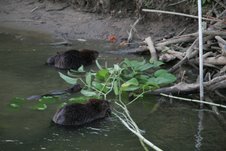

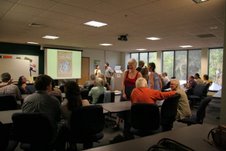





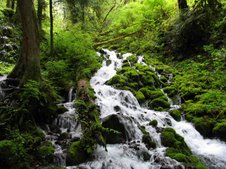



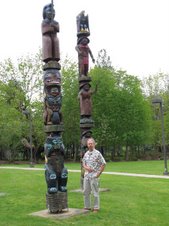



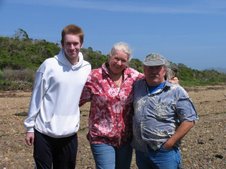

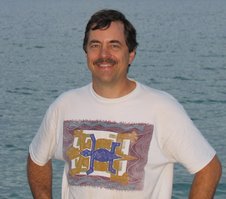
No comments:
Post a Comment